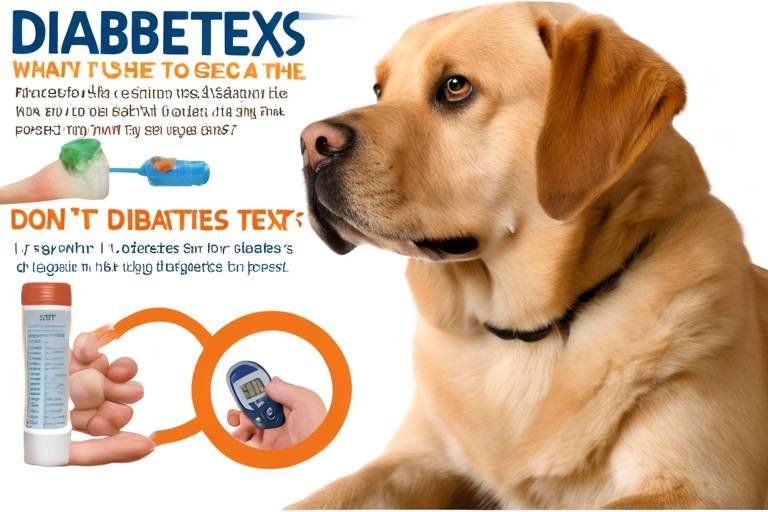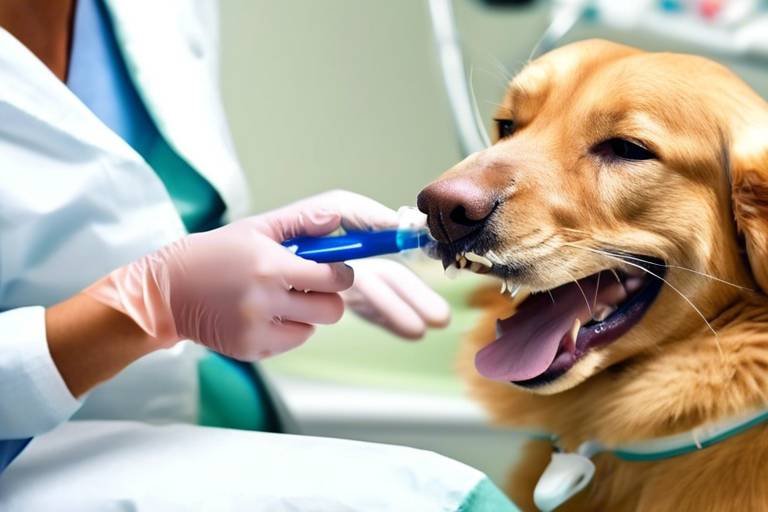Understanding the Benefits of Omega Fatty Acids for Pets
When it comes to ensuring our furry friends lead happy and healthy lives, nutrition is a key player. One of the most important components of a balanced diet for pets is omega fatty acids. These essential fats are not just a trend; they are vital for maintaining optimal health in our pets. Just like humans, pets require a mix of nutrients to thrive, and omega fatty acids are among the most beneficial. Incorporating these into your pet's diet can lead to a multitude of health benefits, including improved coat quality, enhanced joint health, and better overall well-being.
But what exactly are omega fatty acids? In simple terms, they are types of polyunsaturated fats that the body cannot produce on its own, meaning they must be obtained through diet. Omega-3 and omega-6 fatty acids are the most well-known types, each playing unique roles in your pet's health. The significance of these fatty acids cannot be overstated; they contribute to various bodily functions, from cellular health to immune system support.
Imagine your pet's body as a well-oiled machine. Just like a car needs the right fuel to run smoothly, your pet needs omega fatty acids to function at their best. Without them, you may notice signs of distress, such as dull fur, lethargy, or even joint pain. On the flip side, with the right balance of omega fatty acids, your pet can enjoy a shiny coat, increased energy levels, and even a more robust immune system. It's like giving your pet a little boost of vitality!
In this article, we will delve deeper into the various advantages of omega fatty acids, exploring their roles, sources, and how they can transform your pet's health for the better. By the end, you'll be equipped with the knowledge to make informed dietary choices for your beloved companions, ensuring they live their happiest and healthiest lives.
Omega fatty acids play a crucial role in maintaining pets' health, supporting various bodily functions, and contributing to optimal nutrition. These essential fats help regulate inflammation, support skin and coat health, and even boost cognitive function. By understanding their significance, pet owners can make informed dietary choices that significantly impact their furry friends' lives. For instance, omega-3 fatty acids are particularly known for their anti-inflammatory properties, which can be a game-changer for pets suffering from allergies or joint issues.
There are several types of omega fatty acids, including omega-3 and omega-6, each serving distinct purposes in a pet's diet. Omega-3 fatty acids, often derived from fish oil, are recognized for their ability to combat inflammation and support cardiovascular health. On the other hand, omega-6 fatty acids, found in plant oils, are essential for maintaining skin health and promoting a shiny coat. Understanding these types can aid in selecting the right supplements and ensuring your pet receives a balanced diet.
Omega-3 fatty acids are known for their anti-inflammatory properties and benefits for skin and coat health. They can also support heart health and cognitive function in pets, making them essential for overall wellness. Regularly incorporating omega-3s into your pet's diet can lead to noticeable improvements in their energy levels and overall mood.
Common sources of omega-3 fatty acids include:
- Fish oil
- Flaxseed oil
- Algae
Incorporating these into your pet's diet can enhance their health and provide necessary nutrients. For example, fish oil is not only rich in omega-3s but also contains vitamins that further support your pet's well-being.
Omega-3 fatty acids are particularly beneficial for pets with joint issues, as they help reduce inflammation and improve mobility. Regular supplementation can enhance your pet's quality of life, allowing them to enjoy their daily activities without discomfort. Think of omega-3s as a natural lubricant for your pet's joints, helping them move with ease and grace.
Omega-6 fatty acids are essential for skin and coat health, promoting a shiny appearance and preventing dryness. They also play a role in overall cellular function and immune response. A balanced intake of both omega-3 and omega-6 fatty acids is crucial for your pet's health, as they work synergistically to support various bodily functions.
Recognizing the signs of omega fatty acid deficiency in pets is vital for timely intervention. Symptoms can include dry skin, poor coat quality, and increased inflammation, indicating a need for dietary adjustments. If you notice your pet scratching more than usual or their coat losing its luster, it may be time to reassess their diet and consider adding omega fatty acids.
A diet rich in omega fatty acids can significantly improve your pet's coat quality, leading to a shinier, healthier appearance. Regular supplementation may also reduce shedding and skin irritations, making your pet not only look good but feel good too. Think of omega fatty acids as the secret ingredient to a fabulous fur coat!
Incorporating omega fatty acids into your pet's diet can support various aspects of their health, including cardiovascular function, cognitive ability, and immune system performance. This holistic approach to nutrition promotes longevity and vitality, allowing your pet to enjoy life to the fullest.
1. How can I tell if my pet needs more omega fatty acids?
Look for signs such as dry skin, a dull coat, or increased shedding. If you notice these symptoms, it may be time to boost their omega intake.
2. Can I give my pet human omega supplements?
It's best to consult your veterinarian before giving your pet any supplements designed for humans, as dosages and formulations may differ.
3. How often should I supplement my pet's diet with omega fatty acids?
This depends on your pet's specific needs and dietary requirements. Consult with your veterinarian to determine the right frequency and dosage.

The Role of Omega Fatty Acids
When it comes to our furry friends, nutrition is key to ensuring they lead happy and healthy lives. Omega fatty acids, particularly omega-3 and omega-6, are essential components of a balanced diet that can significantly impact your pet's overall health. These nutrients are not just buzzwords; they play a crucial role in various bodily functions, helping to maintain everything from skin health to cognitive function. Think of omega fatty acids as the superheroes of your pet's diet—working tirelessly behind the scenes to keep everything running smoothly.
One of the most important functions of omega fatty acids is their ability to support cellular health. These fatty acids are vital for building cell membranes, which are essential for protecting the cells in your pet's body. Without sufficient omega fatty acids, cellular functions can become compromised, leading to a host of health issues. Additionally, they play a role in the production of hormones that regulate various bodily processes, including inflammation and metabolism.
Moreover, omega fatty acids are known for their anti-inflammatory properties. This means that they can help reduce inflammation throughout your pet's body, which is particularly beneficial for pets suffering from arthritis or other inflammatory conditions. Imagine omega fatty acids as a soothing balm that calms the storm of inflammation, allowing your pet to move more freely and comfortably.
It's also worth noting that omega fatty acids contribute to skin and coat health. A diet rich in these nutrients can lead to a shiny, lustrous coat and help prevent issues like dry skin and excessive shedding. Picture your pet strutting around with a coat that gleams in the sunlight—this is not just a dream; it can be a reality with the right dietary choices!
In summary, incorporating omega fatty acids into your pet's diet is not just beneficial; it is essential for their overall well-being. By understanding the role these fatty acids play in maintaining health, pet owners can make informed choices that lead to happier, healthier pets. So, the next time you're considering your pet's diet, remember the vital role that omega fatty acids play in keeping your furry friend in tip-top shape!

Types of Omega Fatty Acids
When it comes to omega fatty acids, understanding the different types is like unlocking a treasure chest of health benefits for your furry friends. The two most prominent categories are omega-3 and omega-6 fatty acids. Each type plays a unique and essential role in your pet's diet, catering to various aspects of their health and well-being. Knowing the differences can help you choose the best supplements or food options for your beloved companions.
Omega-3 fatty acids are the rock stars of the omega family, often celebrated for their remarkable anti-inflammatory properties. These fatty acids are like a soothing balm for your pet's body, helping to reduce inflammation and support overall health. They are particularly beneficial for pets suffering from joint issues or skin conditions, making them a must-have in your pet's diet. Think of omega-3s as the superheroes that come to the rescue, ensuring your pet feels their best!
On the flip side, we have omega-6 fatty acids, which are equally important but serve a different purpose. These fatty acids are essential for maintaining healthy skin and a lustrous coat. They help to lock in moisture, preventing dryness and flakiness. Imagine omega-6s as the nourishing lotion for your pet's skin, promoting a shiny, vibrant appearance. Additionally, they play a crucial role in cellular function and immune response, helping your pet fend off illnesses.
To give you a clearer picture of how these fatty acids work, let’s look at a quick comparison:
| Type | Benefits | Common Sources |
|---|---|---|
| Omega-3 | Anti-inflammatory, supports heart health, improves skin and coat | Fish oil, flaxseed oil, algae |
| Omega-6 | Promotes healthy skin and coat, aids immune function | Poultry fat, corn oil, sunflower oil |
Both omega-3 and omega-6 fatty acids are considered essential, meaning that your pet's body cannot produce them on its own. Therefore, it's crucial to include these fatty acids in their diet through high-quality pet food or supplements. Just like we need a balanced diet to thrive, our pets do too! Striking the right balance between omega-3 and omega-6 fatty acids is vital. Too much of one can lead to health issues, so consulting with your veterinarian is always a wise step.
In summary, understanding the types of omega fatty acids and their benefits can empower you as a pet owner. By incorporating the right sources of these essential nutrients into your pet's diet, you can help enhance their health, improve their coat quality, and contribute to their overall well-being. So, the next time you’re at the pet store or browsing for supplements online, remember the powerful roles of omega-3 and omega-6 fatty acids. Your furry friend will thank you for it!
Omega-3 Fatty Acids
Omega-3 fatty acids are like the superheroes of pet nutrition, renowned for their powerful anti-inflammatory properties and a multitude of health benefits. Imagine your pet feeling spry and energetic, thanks to these magical nutrients that help support not just their skin and coat health, but also their heart and brain functions. It's almost like giving your furry friend a secret weapon against various health issues!
One of the standout features of omega-3 fatty acids is their ability to combat inflammation. This is particularly important for pets suffering from conditions like arthritis or other joint-related issues. By incorporating omega-3s into their diet, you can help reduce swelling and discomfort, allowing your pet to enjoy a more active lifestyle. It’s like adding a turbo boost to their daily activities!
Furthermore, omega-3 fatty acids play a crucial role in maintaining cognitive function, especially in older pets. Just as humans benefit from a diet rich in omega-3s for brain health, our furry companions can experience improved memory and cognitive abilities. This can mean fewer moments of confusion and more time spent enjoying life with you!
Now, you might be wondering where to find these fantastic fatty acids. Well, you’re in luck! Common sources include:
- Fish oil - Packed with EPA and DHA, two types of omega-3s that are incredibly beneficial.
- Flaxseed oil - A great plant-based source for those looking for vegetarian options.
- Algae - An excellent alternative for pets that may be allergic to fish.
Incorporating these sources into your pet's diet can be as simple as adding a few drops of fish oil to their food or choosing a high-quality pet food that lists omega-3 fatty acids among its ingredients. Just imagine the joy of seeing your pet’s coat transform into a shiny, healthy mane, all thanks to these little wonders!
Ultimately, omega-3 fatty acids are essential not just for maintaining a healthy coat but for ensuring your pet enjoys a long, vibrant life. So, the next time you're at the pet store or browsing online, keep an eye out for omega-3 supplements or foods. Your furry friend will thank you for it!
Sources of Omega-3
When it comes to enriching your pet's diet with omega-3 fatty acids, understanding the best sources is essential. Omega-3s are not something that pets can produce on their own, so we, as pet owners, need to step in and provide these vital nutrients. The most popular and effective sources of omega-3 fatty acids include fish oil, flaxseed oil, and algae. Each of these sources has its unique benefits and can be easily incorporated into your pet's meals.
Fish oil is perhaps the most well-known source of omega-3s, particularly because it contains both EPA (eicosapentaenoic acid) and DHA (docosahexaenoic acid), which are crucial for your pet's health. Not only does fish oil help improve skin and coat quality, but it also supports heart health and cognitive function. When choosing fish oil, look for high-quality products that are free from contaminants like mercury and PCBs.
Another excellent source is flaxseed oil, which is derived from the seeds of the flax plant. This oil is rich in alpha-linolenic acid (ALA), a type of omega-3 that can be converted into EPA and DHA in the body, although not as efficiently as from fish oil. Flaxseed oil is a great option for pets with allergies to fish or for those on a vegetarian diet. Just remember to store it in a cool, dark place to prevent it from going rancid.
For those considering a plant-based option, algae is an increasingly popular source of omega-3s. Algae oil provides a direct source of DHA and is often used in vegetarian pet diets. This option is not only sustainable but also highly nutritious. Algae supplements can be a fantastic addition to your pet's diet, especially if you're looking for an eco-friendly alternative.
In addition to these oils, there are also whole food sources that can contribute to your pet's omega-3 intake. For example, chia seeds and hemp seeds are packed with ALA and can be sprinkled on your pet's food. However, it’s essential to note that while these seeds are beneficial, they should not replace the more potent sources like fish oil or algae.
Incorporating these omega-3 sources into your pet's diet can be as simple as adding a few drops of oil to their food or mixing in some seeds. Just like us, our furry friends thrive on variety, so rotating between different sources can ensure they receive a balanced intake of these essential fatty acids. Always consult your veterinarian before making significant changes to your pet’s diet, especially when introducing supplements.
Benefits for Joint Health
When it comes to our furry friends, keeping their joints healthy is essential for maintaining their overall quality of life. Omega-3 fatty acids are particularly beneficial in this regard, serving as a natural anti-inflammatory agent. Just like how a soothing balm can ease sore muscles, omega-3s can help alleviate joint pain and stiffness in pets. This is especially important for older pets or those suffering from conditions like arthritis.
Incorporating omega-3s into your pet's diet can lead to significant improvements in their mobility. Imagine watching your dog chase a ball with the same vigor they had as a puppy, or seeing your cat leap effortlessly onto the windowsill again. These fatty acids work by reducing inflammation in the joints, which not only helps with pain management but also enhances overall joint function. Regular supplementation can lead to a more active lifestyle, allowing pets to enjoy their daily activities without discomfort.
Moreover, the benefits of omega-3 fatty acids extend beyond just joint health. They support the production of synovial fluid, which lubricates the joints and helps absorb shock. This is akin to how oil keeps an engine running smoothly; without enough lubrication, joints can become stiff and painful. By ensuring your pet receives adequate omega-3s, you're essentially providing them with the tools they need to maintain their joint health.
To give you a clearer picture, here’s a quick overview of how omega-3 fatty acids contribute to joint health:
| Benefit | Description |
|---|---|
| Reduces Inflammation | Helps to decrease swelling and pain in the joints, making movement easier. |
| Improves Mobility | Enhances overall joint function, allowing pets to move more freely and comfortably. |
| Supports Synovial Fluid Production | Promotes the production of fluid that lubricates joints, preventing stiffness. |
In conclusion, ensuring your pet’s diet is rich in omega-3 fatty acids can lead to profound improvements in their joint health. Just like how we take supplements to support our own health, our pets can greatly benefit from these essential nutrients. So, if you notice your pet struggling to jump or play as they used to, consider adding omega-3s to their diet. After all, a happy pet is a healthy pet!
- What are omega-3 fatty acids? Omega-3 fatty acids are essential fats that are important for maintaining health in pets, particularly for reducing inflammation and supporting joint health.
- How can I add omega-3s to my pet's diet? You can incorporate omega-3s through supplements like fish oil, flaxseed oil, or by feeding your pet foods rich in these fatty acids.
- Are there any side effects of omega-3 supplementation? While omega-3s are generally safe, it's important to consult your veterinarian for the right dosage and to avoid potential interactions with other medications.
- How long does it take to see improvements in joint health? Most pet owners notice improvements within a few weeks of consistent supplementation, but results can vary based on the individual pet's condition.
Omega-6 Fatty Acids
Omega-6 fatty acids are a vital component of your pet's diet, playing a significant role in promoting overall health and well-being. These essential fatty acids are not just a trendy addition to pet food; they are crucial for maintaining healthy skin and a lustrous coat. When you think about it, omega-6s act like the building blocks for your pet's cellular structure, ensuring that every cell functions optimally. Imagine your pet's body as a well-oiled machine; without the right fuel, things can start to break down.
One of the standout benefits of omega-6 fatty acids is their ability to promote a shiny, healthy coat. Pets that receive an adequate amount of these fatty acids often have less dry skin and reduced flakiness, which means fewer unsightly skin irritations. If you've ever noticed your furry friend scratching more than usual or if their coat looks dull and lifeless, it might be time to consider their omega-6 intake.
Moreover, omega-6 fatty acids play a significant role in the immune response. They help regulate inflammation in the body, which is crucial for pets that may suffer from allergies or other inflammatory conditions. Think of omega-6s as the peacekeepers of your pet's body, helping to maintain balance and harmony. They work alongside omega-3 fatty acids, creating a perfect balance that supports skin health, immune function, and overall vitality.
Common sources of omega-6 fatty acids include:
- Chicken fat
- Sunflower oil
- Safflower oil
- Evening primrose oil
When selecting a diet for your pet, it's essential to ensure that it contains these omega-6 sources. However, balance is key; too much omega-6 can lead to an imbalance with omega-3 fatty acids, potentially leading to inflammation instead of alleviating it. Therefore, maintaining a healthy ratio of omega-6 to omega-3 is crucial for your pet's well-being.
In summary, incorporating omega-6 fatty acids into your pet's diet is not just about enhancing their coat's appearance. It's about supporting their immune system, promoting healthy skin, and ensuring that their overall cellular functions are performing at their best. By understanding the importance of these fatty acids, you can make informed choices that will lead to a happier, healthier pet.
Q: How can I tell if my pet is getting enough omega-6 fatty acids?
A: Look for signs such as a shiny coat, healthy skin, and overall vitality. If your pet is experiencing dry skin or a dull coat, it may indicate a deficiency.
Q: Can I give my pet omega-6 supplements?
A: Yes, but it's best to consult your veterinarian before starting any supplements to ensure they fit your pet's specific dietary needs.
Q: Are there any risks associated with too much omega-6?
A: Yes, an excess of omega-6 can lead to inflammation and other health issues. It's essential to maintain a balanced intake of omega-3 and omega-6 fatty acids.

Signs of Omega Deficiency
Recognizing the signs of omega fatty acid deficiency in pets is crucial for their health and well-being. Just like how we might feel sluggish or unwell when we're lacking essential nutrients, our furry friends can exhibit similar symptoms when their diets fall short of these vital fats. So, what should you look out for?
One of the most common indicators of omega deficiency is dry, flaky skin. If you notice your pet scratching more than usual or if their skin appears dull and lifeless, it could be a sign that they’re not getting enough omega fatty acids. A healthy coat should be shiny and smooth, and if it’s not, it might be time to reevaluate their diet.
Another telltale sign is poor coat quality. A lack of omega fatty acids can lead to excessive shedding and a rough texture. Imagine your pet's fur as a beautiful, soft blanket; without the right nutrients, that blanket can become tattered and worn. You might also observe patches of hair loss or a change in color, which can be alarming for any pet owner.
Additionally, if your pet seems to be experiencing more inflammation than usual—such as swollen joints or frequent ear infections—this could also point to an omega deficiency. Omega-3 fatty acids, in particular, are known for their anti-inflammatory properties, and without them, your pet may suffer from increased discomfort.
To make it easier to recognize these signs, here’s a quick summary:
| Signs of Omega Deficiency | Description |
|---|---|
| Dry Skin | Flaky, itchy skin that lacks moisture. |
| Poor Coat Quality | Rough, dull fur with excessive shedding. |
| Joint Inflammation | Swollen joints and discomfort during movement. |
| Frequent Infections | Increased susceptibility to ear infections and other issues. |
Ultimately, if you notice any of these signs in your pet, it’s essential to consult with your veterinarian. They can help determine if an omega fatty acid supplement is necessary and guide you on the best dietary adjustments to make. Remember, just like us, our pets thrive when they receive the right balance of nutrients!
Q: How can I ensure my pet is getting enough omega fatty acids?
A: Incorporating high-quality pet foods that list omega-rich ingredients, such as fish oil or flaxseed oil, can help. Additionally, consider omega supplements after consulting with your vet.
Q: What are the best sources of omega-3 for pets?
A: Fish oil, flaxseed oil, and algae are excellent sources of omega-3 fatty acids. Always opt for high-quality products to ensure your pet reaps the maximum benefits.
Q: Can omega fatty acids help with my pet's allergies?
A: Yes! Omega-3 fatty acids can help reduce inflammation and may alleviate symptoms associated with allergies in pets.
Q: Is it safe to give my pet omega supplements?
A: Generally, yes, but it's crucial to consult your veterinarian before starting any new supplements to ensure they are appropriate for your pet's specific needs.
Improving Coat Quality
When it comes to our furry friends, a shiny and healthy coat is often a reflection of their overall well-being. Just like humans, pets can experience fluctuations in their skin and coat quality due to various factors, including diet, environment, and health conditions. One of the most effective ways to enhance your pet's coat quality is by incorporating omega fatty acids into their diet. These essential nutrients serve as the building blocks for healthy skin and fur, and their benefits go beyond mere aesthetics.
Imagine your pet's coat as a beautiful tapestry; without the right threads, it can become dull and frayed. Omega fatty acids, particularly omega-3 and omega-6, are like the vibrant colors that bring this tapestry to life. They help to lock in moisture, combat dryness, and promote a lustrous shine. Pets that receive adequate omega fatty acids often display a coat that not only looks good but feels soft and healthy to the touch.
Moreover, omega fatty acids play a vital role in reducing skin irritations and allergies. Many pets suffer from conditions like dry skin, eczema, or other dermatological issues that can lead to excessive scratching and discomfort. By enriching their diet with omega fatty acids, you can help alleviate these symptoms. Regular supplementation can act as a shield, protecting your pet's skin from inflammation and promoting healing from within.
In addition to improving coat quality, omega fatty acids can also help reduce shedding. Shedding is a natural process, but excessive shedding can be a sign of underlying issues, including poor nutrition. When your pet's diet is rich in omega fatty acids, they are less likely to lose fur excessively, keeping your home cleaner and your pet looking fabulous.
To make the most of omega fatty acids for coat improvement, consider including the following sources in your pet's diet:
- Fish Oil: Rich in omega-3 fatty acids, fish oil can significantly enhance coat quality.
- Flaxseed Oil: A great plant-based source of omega-3, ideal for pets who may be allergic to fish.
- Algal Oil: A sustainable source of omega-3, perfect for vegetarian or vegan pet diets.
- Eggs: A natural source of omega-6 fatty acids that can improve skin health.
Incorporating these sources into your pet's meals can be as simple as adding a few drops of oil to their food or choosing high-quality pet foods that list omega fatty acids among their ingredients. It's essential to consult with your veterinarian to determine the right dosage and ensure that your pet is receiving the appropriate balance of omega-3 and omega-6 fatty acids.
Ultimately, investing in your pet's coat quality through omega fatty acids can lead to a happier, healthier life. A shiny coat not only makes your pet look good but also signifies that they are thriving. So, why not take that extra step to pamper your furry friend? After all, a healthy pet is a happy pet!
Q: How long does it take to see improvements in my pet's coat after adding omega fatty acids?
A: While some pets may show noticeable changes within a few weeks, it can take up to several months for the full effects to become apparent, depending on the individual pet and their overall health.
Q: Can I give my pet too much omega fatty acids?
A: Yes, excessive amounts of omega fatty acids can lead to health issues. It's crucial to follow your veterinarian's recommendations for the appropriate dosage based on your pet's size and health needs.
Q: Are there any side effects of omega fatty acids?
A: Generally, omega fatty acids are safe for pets, but some may experience digestive upset or allergic reactions. Always introduce any new supplement gradually and monitor your pet for any adverse effects.
Supporting Overall Health
Incorporating omega fatty acids into your pet's diet is not just a trendy health tip; it's a vital step towards ensuring their overall well-being. These essential fats do wonders for various bodily functions, making them an indispensable part of your furry friend's nutrition. Imagine omega fatty acids as tiny superheroes, swooping in to protect and enhance your pet's health in multiple ways.
One of the most significant benefits of omega fatty acids is their ability to support cardiovascular health. Just like humans, pets need a healthy heart to thrive. Omega-3 fatty acids, in particular, can help reduce triglycerides, lower blood pressure, and even prevent arrhythmias. By incorporating these essential fats into your pet's diet, you're giving their heart the boost it needs to keep beating strong.
Moreover, omega fatty acids are crucial for cognitive function. As pets age, they can experience cognitive decline, similar to what humans face. Omega-3 fatty acids, especially DHA (docosahexaenoic acid), have been shown to support brain health and improve memory and learning capabilities. So, if you want your pet to remain sharp and alert, consider adding omega-rich foods or supplements to their meals.
Another area where omega fatty acids shine is in supporting the immune system. A robust immune system is essential for warding off illnesses and infections. Omega-6 fatty acids play a role in the inflammatory response, which is crucial for healing. When your pet's body is functioning optimally, they are less likely to fall ill, leading to a happier, healthier life.
To put it simply, when you feed your pet a diet rich in omega fatty acids, you're investing in their long-term health. Think of it as giving them the best chance to live a full, vibrant life. Remember, a little bit goes a long way, and it’s essential to find the right balance. Too much of anything can be harmful, so always consult with your veterinarian to determine the appropriate amount for your pet's specific needs.
In summary, omega fatty acids are like the Swiss Army knife of pet nutrition. They support cardiovascular health, enhance cognitive function, and boost the immune system—all vital components of a happy, healthy pet. So why not take that leap and enrich your furry friend's diet with these essential nutrients? They deserve nothing less!
- What are omega fatty acids? Omega fatty acids are essential fats that are crucial for various bodily functions in pets, including heart health, skin quality, and cognitive function.
- How can I tell if my pet is deficient in omega fatty acids? Signs of deficiency may include dry skin, poor coat quality, increased shedding, and inflammation.
- What are the best sources of omega fatty acids for pets? Common sources include fish oil, flaxseed oil, and algae, which can be added to your pet's diet through supplements or food.
- Can I give my pet too much omega fatty acids? Yes, over-supplementation can lead to health issues. It's best to consult with your veterinarian for the right dosage.
Frequently Asked Questions
- What are omega fatty acids and why are they important for my pet?
Omega fatty acids are essential fats that play a crucial role in maintaining your pet's health. They support various bodily functions, including skin and coat health, immune response, and heart function. Incorporating omega fatty acids into your pet's diet can lead to improved overall well-being and vitality.
- What types of omega fatty acids should I consider for my pet?
The two main types of omega fatty acids that are beneficial for pets are omega-3 and omega-6. Omega-3 fatty acids are known for their anti-inflammatory properties and support for cognitive function, while omega-6 fatty acids are essential for healthy skin and coat. Understanding the differences can help you choose the right supplements for your furry friend.
- How can I tell if my pet is deficient in omega fatty acids?
Signs of omega fatty acid deficiency in pets can include dry skin, poor coat quality, increased shedding, and inflammation. If you notice any of these symptoms, it may be time to adjust your pet's diet to include more omega fatty acids for better health.
- What are some good sources of omega-3 fatty acids for pets?
Common sources of omega-3 fatty acids include fish oil, flaxseed oil, and algae. These can be added to your pet's diet through supplements or specially formulated pet foods. Incorporating these sources can enhance your pet's health and provide necessary nutrients.
- Can omega fatty acids help with my pet's joint health?
Absolutely! Omega-3 fatty acids are particularly beneficial for pets with joint issues. They help reduce inflammation and improve mobility, making them a great addition to the diet of pets suffering from arthritis or other joint problems.
- Will adding omega fatty acids to my pet's diet improve their coat quality?
Yes, a diet rich in omega fatty acids can significantly improve your pet's coat quality. You can expect a shinier, healthier appearance, and regular supplementation may also help reduce shedding and alleviate skin irritations.
- How can I incorporate omega fatty acids into my pet's diet?
You can incorporate omega fatty acids into your pet's diet by choosing high-quality pet foods that list omega-3 and omega-6 sources, or by adding supplements like fish oil or flaxseed oil. Always consult with your veterinarian before making significant dietary changes.
- Are there any side effects of omega fatty acid supplementation?
While omega fatty acids are generally safe, over-supplementation can lead to gastrointestinal upset or other issues. It's important to follow recommended dosages and consult with your veterinarian to find the right balance for your pet.



















